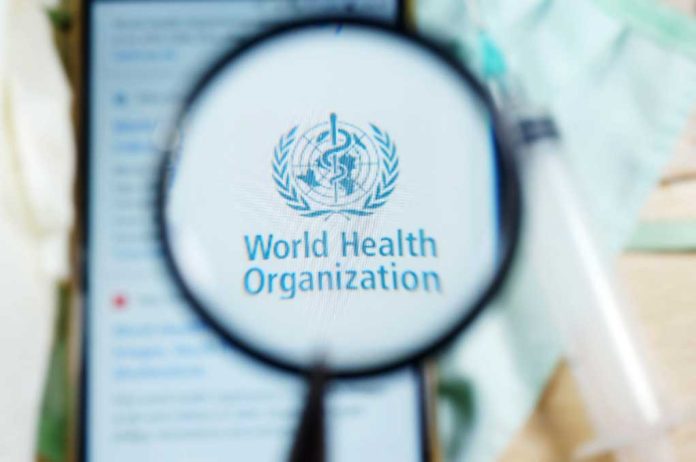
Robert F. Kennedy Jr. and Argentina’s Health Minister Mario Lugones are creating a new global health institution to replace the WHO, which both nations have officially left due to the organization’s political corruption and mishandling of the COVID-19 pandemic.
Key Takeaways
- The United States and Argentina have both officially withdrawn from the World Health Organization (WHO) and are creating an alternative global health institution.
- Leaders from both countries cited the WHO’s mismanagement of the COVID-19 pandemic, political corruption, and undue influence from China and pharmaceutical companies.
- U.S. Health Secretary Robert F. Kennedy Jr. and Argentine Health Minister Mario Lugones are spearheading the initiative to create a transparent, science-based alternative.
- President Trump ordered the U.S. withdrawal from the WHO during his second term, fulfilling a campaign promise.
- The new health institution aims to prioritize scientific integrity, national sovereignty, and accountability in global health governance.
A New Era in Global Health Cooperation
In a significant shift in international health policy, the United States and Argentina have confirmed their withdrawal from the World Health Organization and announced plans to establish a new global health institution. The decision, supported by President Donald Trump and Argentine President Javier Milei, represents a fundamental rethinking of how nations should collaborate on worldwide health challenges. The joint venture aims to create a framework that prioritizes scientific evidence over political considerations, addressing the shortcomings exposed during the COVID-19 pandemic response.
“The WHO’s prescriptions do not work because they are not based on science but on political interests and bureaucratic structures that refuse to review their own mistakes,” According to Argentina’s government.
U.S. Health and Human Services Secretary Robert F. Kennedy Jr. traveled to Buenos Aires to meet with Argentine officials and solidify the partnership. Both countries have expressed deep dissatisfaction with the WHO’s performance during the pandemic and its organizational structure. Argentina had already announced its departure from the WHO in February, while President Trump ordered the U.S. exit during his second term, following through on promises to reform America’s approach to global health governance.
Addressing WHO’s Fundamental Failures
Kennedy and Lugones issued a joint statement highlighting the “structural and operational shortcomings that undermined global trust and highlighted the urgent need for independent, science-based leadership in global health.” Their criticism centers on the WHO’s perceived capture by special interests, including the Chinese government and pharmaceutical companies. The organization’s pandemic response has been widely criticized for delayed action, contradictory guidance, and lack of transparency about origins and effective treatments.
“Withdrawal marks the beginning of a new path – toward building a modern global health cooperation model grounded in scientific integrity, transparency, sovereignty, and accountability,” Stated Kennedy and Lugones
During Kennedy’s meeting with President Milei, they discussed the potential “creation of an alternative international health system” that would correct the fundamental problems they identified with the WHO. The Trump administration had initially considered remaining in the WHO if significant reforms were implemented, including the appointment of a U.S. director-general, but ultimately decided that creating a new institution would be more effective than attempting to reform the existing one.
Building a Science-Based Alternative
The new global health institution being developed by the U.S. and Argentina will emphasize scientific integrity over ideological agendas. Health Minister Lugones emphasized the shared vision between the two nations, stating, “Together with Robert Kennedy, we believe in the future of collaboration in global health. We have similar visions about the path forward.” This collaboration signals a significant realignment in how nations approach international health cooperation, with sovereignty and accountability at the forefront.
Argentina has already begun a “structural review” of its national health agencies to improve organization and transparency, aligning its domestic health infrastructure with the principles of the new international institution. The reform efforts aim to restore public trust in health authorities, which was severely damaged during the pandemic. Kennedy, who has been outspoken about problems in pharmaceutical research and vaccine safety, has encouraged other countries to join the U.S. and Argentina in leaving the WHO.
This bold initiative represents the Trump administration’s commitment to putting America first while still engaging in international cooperation on terms that protect national sovereignty and promote genuine scientific advancement. By rejecting the bureaucratic failures of the WHO and building something new, these nations are charting a course for more effective responses to future global health challenges.



